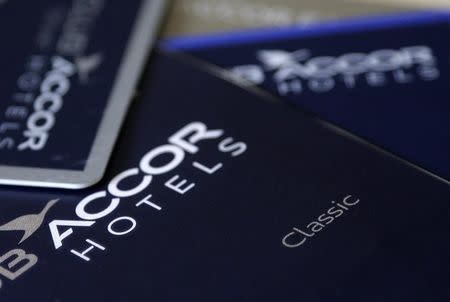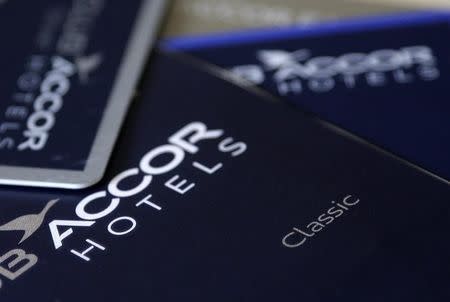Accor goes digital to combat online rivals
By Dominique Vidalon
PARIS (Reuters) - Accor, Europe's largest hotel group, plans to spend 225 million euros (177.38 million pounds) between 2014 and 2018 to beef up its digital business in response to the challenge from online booking rivals like Expedia and Booking.com.
In a statement ahead of an investor day detailing the plan, Accor said that as part of the plan it had bought French start-up Wipolo, a travel software company that offers mobile and web itinerary management services. It did not disclose the sum paid.
Accor, which competes with InterContinental, Marriott and Starwood, is undergoing a reorganisation initiated by Chief Executive Sebastien Bazin, who took over more than a year ago.
Bazin faces challenges range from rising competition from online travel agents (OTAs), who are hitting the margins of traditional hoteliers and earning commission fees that can reach 20 percent of the cost of a room, to the growing popularity of online home-sharing site Airbnb.
Accor's response notably focuses on beefing up its IT tools and systems, improving existing services such as TARS, the Accor Reservation System, bolstering its loyalty programme, and expanding the group's distribution market share.
The digital push comes after a busy first year for Bazin in the top seat at Accor, whose 14 hotel brands range from budget Ibis to luxury Sofitel.
His first move has been to reorganise Accor, which had 2013 revenue of 5.5 billion euros and 3,600 hotels in 92 countries, into two divisions -- HotelServices and HotelInvest — to separate its operating and franchising business from its real estate activity, and boost profitability.
In a move to regain more control over distribution, Bazin has named former Orange executive and tech specialist Vivek Badrinath as deputy CEO in charge of marketing, digital and information systems. He has been in place since March.
Accor's shares have lost 6.4 percent this year, underperforming a 2.6 percent rise in the European travel and leisure index, after gains of 28.5 percent in 2013.
(This version of the story corrects paragraph two to show occasion is investor day, not results)
(Reporting by Dominique Vidalon; Editing by James Regan and Andrew Callus)




